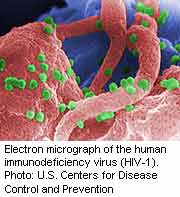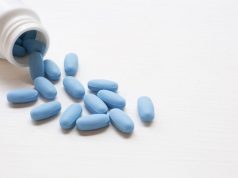Research suggests tenofovir/emtricitabine doesn’t need to be taken daily, but more study still needed
WEDNESDAY, Feb. 25, 2015 (HealthDay News) — There’s new evidence that pre-exposure prophylaxis (PrEP) in the days before and after a sexual encounter with an HIV-infected partner can be effective prevention. Two new studies were presented Tuesday at the annual Conference on Retroviruses and Opportunistic Infections, held from Feb. 23 to 26 in Seattle.
The British investigation, called PROUD, involved 500 men who have sex with men (MSM) and seems to reconfirm the effectiveness of standard, once-a-day PrEP. That study found that this dosing strategy lowered HIV infection risk by 86 percent among MSM.
The French/Canadian investigation, called IPERGAY, looked at PrEP taken on a different schedule — only around the days surrounding a sexual encounter. It found the same degree of protection — an 86 percent lower risk for new infection — among men who took two tenofovir/emtricitabine (Truvada) pills anytime between two and 24 hours prior to having sex with another man, followed by another two pills 24 and 48 hours after sex. The IPERGAY study, involving 400 participants, was launched in 2012, but was halted prematurely in 2014 in light of strong indications that the approach is highly effective.
In a statement released by the U.S. Centers for Disease Control and Prevention, Jonathan Mermin, M.D., M.P.H., said it is too soon to abandon the once-a-day regimen. Mermin is the director of the CDC’s National Center for HIV/AIDS, Viral Hepatitis, STD & TB Prevention. At this point in time, the CDC “continues to recommend only daily use of PrEP, as approved by the FDA,” he said. Still, the “IPERGAY findings, combined with other recent research, suggests that even with less than perfect daily adherence, PrEP may still offer substantial protection if taken consistently.”
Copyright © 2015 HealthDay. All rights reserved.








